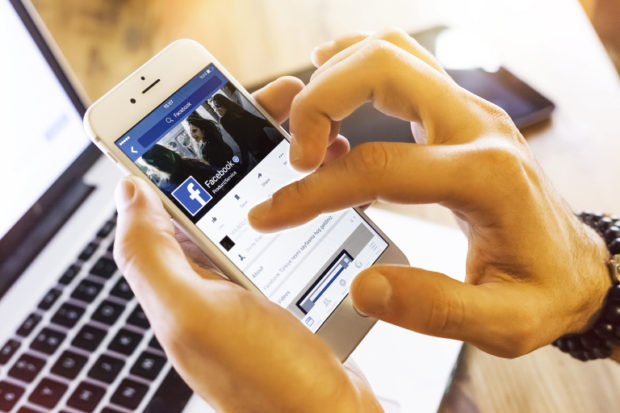Taking just one week off from social media causes withdrawal symptoms

Image: bombuscreative/IStock.com via AFP Relaxnews
A new European research has found that even just a one-week break from social media can cause withdrawal symptoms similar to those experienced when quitting addictive substances.
Carried out by researchers at the Karl Landsteiner University of Health Sciences in Krems (KL Krems) and the University of Vienna, Austria, the new study set out to investigate what happens when users of social media quit using the platforms even for a short period of time and whether they experience any kind of withdrawal.
The researchers recruited 152 participants aged between 18 and 80, 70 percent of them women and instructed them not to use social media such as Facebook and WhatsApp for a period of seven days.
During the study, the team assessed both the positive and negative effects of social media abstinence, participants’ boredom and social media cravings.
The findings, published in the journal Cyberpsychology, Behavior and Social Networking, showed that quitting social media produced classic withdrawal symptoms, including significantly increased urges, boredom and an influence on whether the subjects were in a good or bad mood.
The participants also felt peer pressure to go back on social media, which the researchers say may be due to the fact that people are expected to interact with their friends on social media, or from the belief that by not using the platforms that they could be missing out on something.
The researchers also commented that they were surprised to find that not all participants could even go one week without “relapsing” and using social media. Although they noted that this only occurred rarely, less than twice on average and for a short time, an average of three minutes, 90 out of the 152 participants ended up using social media at some point during the study.
“As it turned out, a seven-day abstinence from social media triggered mild withdrawal symptoms among the subjects, similar to those associated with addictive substances,” explained the author of the study, Professor Stefan Stieger at KL Krems. “In particular, we saw a sharp increase in the desire — the craving — to use social media during the period of abstinence. This effect was even measurable when the subjects were allowed to use social media once again.”
“This feeling of peer pressure is all the more astonishing because the subjects were allowed to use other communication channels such as short text messages (SMS) and e-mail,” Stieger pointed out.
Stieger also added that although more than 1,000 people saw the invitation to participate, only around 30 percent were interested in taking part and even less, just under 15 percent, were prepared to take a break from social media.
“This suggests that the people who registered to take part in the study were those who would find it easier to do without social media — meaning that their withdrawal symptoms could be milder than those in other people,” said Stieger. “So the effect on other individuals could be much more pronounced.” KM
RELATED STORIES:
Duterte supporters plan to deactivate FB accounts, transfer to Russian social media VKontakte